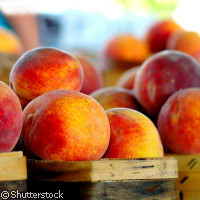EU project spotlights fruits-health connection
The EU-funded project ISAFRUIT ('Increasing fruit consumption through a trans disciplinary approach leading to high quality produce from environmentally safe, sustainable methods'), in collaboration with the International Society for Horticultural Science (ISHS), has released a volume of the Scripta Horticulturae series containing information based on the ISAFRUIT health forum 'Increasing Fruit Consumption to Improve Health'. The objective of the project is to encourage Europeans to eat more fruit. ISAFRUIT is funded under the Sixth Framework Programme with EUR 13.8 million. Scientists say eating a diet rich in fruits and vegetables - regardless whether they're fresh, canned, frozen or in juice form - is key for a healthy future. The risks of various chronic diseases are decreased and cholesterol levels can drop dramatically, they say. So how can people be encouraged to eat more fruit? According to the ISAFRUIT partners, the more a consumer is satisfied with the available produce, the more fruit they will consume. Producers can help increase fruit consumption among Europeans by addressing a number of issues like ensuring fruit availability, quality and taste, and consumer preferences and environmentally friendly production, they added. Recent data show that Greece, Spain, Italy and the Netherlands, consume the most fruit in Europe (from 70 kg to 100 kg per person), followed by Germany, Poland and the UK, where between 40 kg and 60 kg of fruit are consumed per person per year. However, scientists note that the amount of fruit eaten by Europeans is not on the rise. The experts postulate that many Europeans are still not meeting the recommended daily minimum of five portions of fresh fruit and vegetables. The ISAFRUIT forum held in Brussels, Belgium last November, included social and natural scientists and their talks focused on research results and activities. With an eye on consumer science, the social scientists identified and explained patterns of variation in fruit consumption across Europe. The forum's participants evaluated why people behave the way they do and assessed their attitudes to innovations. The team also evaluated the traits of fruit and fruit products supply chains to determine how effective they are in a coordinated chain. The ISAFRUIT partners are also working on establishing sustainable production methods that conserve energy and natural resources, and minimise the number of pesticide and fertiliser applications. Doing so will help the team set up the foundation needed to study the post-harvest phase of the supply chain, which in turn will help meet consumer standards and ensure high quality products. The researchers explained that while it is universally recognised that a diet high in fruit and vegetables can improve the well-being of humans, some questions remain unanswered concerning the fruit traits responsible for improving health. ISAFRUIT is also working on fruit allergenicity (on apples), focusing on the detection of the substances that cause allergic reactions in humans. The ISAFRUIT geneticists and horticulturists aim is to provide consumers with fruit of reduced or no allergenic potential, adopting either innovative growing techniques or/and modern breeding techniques, including biotechnology. Launched in 2006 and set to end in 2010, ISAFRUIT combines the expertise of 300 scientists from 60 research and development institutions, and small and medium-sized enterprises (SMEs) from 16 nations worldwide.



